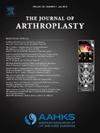全膝关节置换术后患者自我管理量表(PSMS-TKA):工具开发与横断面验证研究。
IF 3.4
2区 医学
Q1 ORTHOPEDICS
引用次数: 0
摘要
背景:全膝关节置换术后有效的自我管理不仅能改善患者的膝关节疼痛和身体功能,还能提高生活质量。然而,目前还没有一种评估工具可以有针对性地评估全膝关节置换术后患者的自我管理水平。本研究旨在开发并验证一个量表,专门评估全膝关节置换术后患者的自我管理水平:研究分两步进行:(方法:研究分两个步骤进行:(1)工具开发;(2)心理测试(n = 428)。在工具开发部分,通过文献综述和半结构化访谈生成量表项目,然后由专家小组进行审核和修订,并进行内容效度评估和试点测试。在心理测试部分,使用校正的项目-总量表相关性、临界比率法和 Cronbach's α 对项目进行了分析。结构效度采用探索性因子分析和验证性因子分析进行评估。通过使用关节炎自我效能感量表-8 和本研究编制的量表计算皮尔逊相关系数,检查了标准相关效度。内部一致性信度采用 Cronbach's α 和折半信度进行评估,重测信度采用组内相关系数进行评估:全膝关节置换术后患者自我管理量表(PSMS-TKA)包括4个因子和23个项目,分别评估日常行为管理、疾病信息管理、社会心理管理和运动康复管理。探索性因子分析和验证性因子分析为这 23 个项目建立了一个稳定的 4 因子模型。以关节炎自我效能感-8 为标准,PSMS-TKA 表现出良好的标准相关效度。PSMS-TKA 的 Cronbach's α 为 0.903,分半信度为 0.934,测试-再测信度相关系数为 0.887(P < 0.01);因此,该量表的信度良好:本研究开发的 PSMS-TKA 具有良好的效度和信度,可用于评估全膝关节置换术后患者的自我管理水平。该量表有助于医护人员了解全膝关节置换术患者的自我管理水平。本文章由计算机程序翻译,如有差异,请以英文原文为准。
Patient Self-Management Scale After Total Knee Arthroplasty (PSMS-TKA): Instrument Development and Cross-Sectional Validation Study
Background
Effective self-management after total knee arthroplasty (TKA) not only improves patients’ knee pain and physical function but also improves quality of life. However, there is no assessment tool that can be targeted to evaluate the self-management level of patients after TKA. This study aimed to develop and validate a scale to specifically assess the level of self-management in patients after TKA.
Methods
The study was conducted in 2 steps: (1) instrument development and (2) psychological tests (n = 428). For the instrument development portion, scale items were generated through a literature review and semi-structured interviews, then reviewed and revised by a panel of experts, and assessed for content validity and pilot testing. For the psychometric tests component, items were analyzed using corrected item-total scale correlations, the critical ratio method, and Cronbach’s α. Construct validity was evaluated using exploratory factor analysis and validation factor analysis. Criterion correlation validity was checked by calculating Pearson’s correlation coefficient using the Arthritis Self-Efficacy Scale-8 and the scale developed in this study. Internal consistency reliability was evaluated using Cronbach’s α and fold-half reliability, and retest reliability was assessed using intragroup correlation coefficients.
Results
The Patient Self-Management Scale after Total Knee Arthroplasty (PSMS-TKA) comprises 4 factors and 23 items that assess daily behavior management, disease information management, psychosocial management, and exercise rehabilitation management. Exploratory factor analysis and validation factor analysis yielded a stable 4-factor model for the 23 items. The PSMS-TKA demonstrated good criterion-related validity when using the Arthritis Self-Efficacy-8 as a criterion. The Cronbach’s α of the PSMS-TKA was 0.903, the split-half reliability was 0.934, and the test-retest reliability correlation coefficient was 0.887 (P < .01); thus, the reliability of the scale is good.
Conclusions
The PSMS-TKA developed in this study has good validity and reliability and can be used to assess the level of self-management in patients after TKA. The scale helps healthcare professionals understand the level of self-management of patients undergoing TKA.
求助全文
通过发布文献求助,成功后即可免费获取论文全文。
去求助
来源期刊

Journal of Arthroplasty
医学-整形外科
CiteScore
7.00
自引率
20.00%
发文量
734
审稿时长
48 days
期刊介绍:
The Journal of Arthroplasty brings together the clinical and scientific foundations for joint replacement. This peer-reviewed journal publishes original research and manuscripts of the highest quality from all areas relating to joint replacement or the treatment of its complications, including those dealing with clinical series and experience, prosthetic design, biomechanics, biomaterials, metallurgy, biologic response to arthroplasty materials in vivo and in vitro.
 求助内容:
求助内容: 应助结果提醒方式:
应助结果提醒方式:


